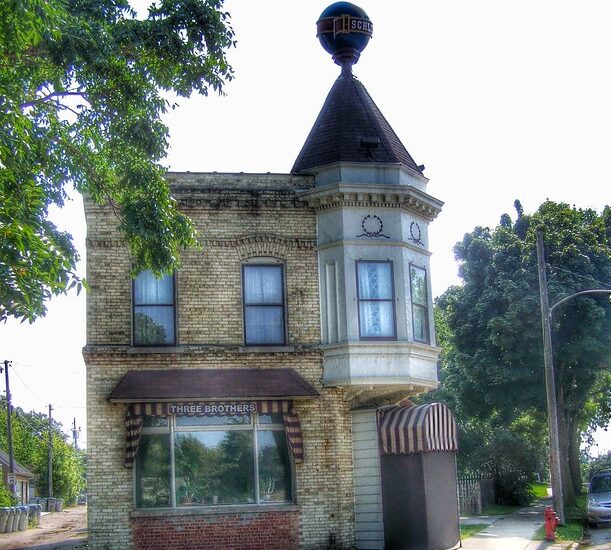Welcome to the Joseph Schlitz Brewing Company Saloon, a remarkable landmark in the brewing history of the United States. Founded in 1849 in Milwaukee, Wisconsin, the brewery started as a small operation by August Krug, a German immigrant who had a vision of creating a thriving brewery in the heart of Milwaukee. Following Krug’s untimely death in 1856, Joseph Schlitz, who had been working as a bookkeeper for Krug, took over the management. Schlitz not only married Krug’s widow in 1858 but also transformed the brewery into a powerhouse of American beer production.
Under Schlitz’s leadership, the brewery expanded significantly. By 1902, it had become the largest beer producer in the United States. Schlitz was known for pioneering innovations in the brewing industry, such as the introduction of brown bottles in 1912, which protected beer from spoilage caused by sunlight. This innovation is still a standard in the industry today.
The Great Chicago Fire of 1871 played a pivotal role in the brewery’s history. As local breweries in Chicago were destroyed, Schlitz seized the opportunity to expand their market share by supplying beer to the city, significantly increasing their sales and popularity.
The saloon, like many others owned by Schlitz, played a vital role in the community, serving as a social hub where people gathered to enjoy a refreshing beer and good company. The iconic slogan, ‘The beer that made Milwaukee famous,’ was coined in 1894 and became synonymous with the Schlitz brand.
The brewery faced significant challenges during Prohibition from 1920 to 1933, a period when the production and sale of alcoholic beverages were banned in the United States. Schlitz adapted by producing non-alcoholic products, keeping the business afloat until Prohibition was repealed.
Today, while the original brewery has ceased operations, the legacy of Joseph Schlitz and his contributions to the brewing industry remain influential. As you explore the area, imagine the bustling activity of a once-thriving brewery that helped shape Milwaukee as a beer capital of America.




